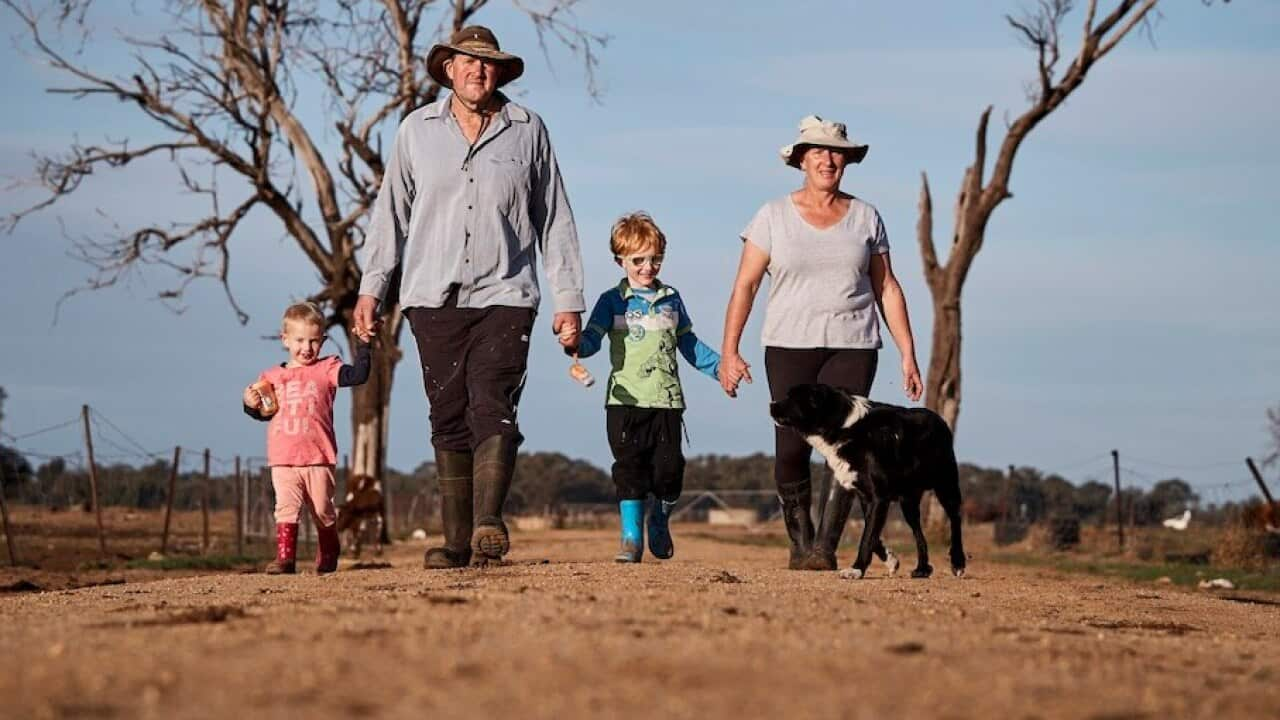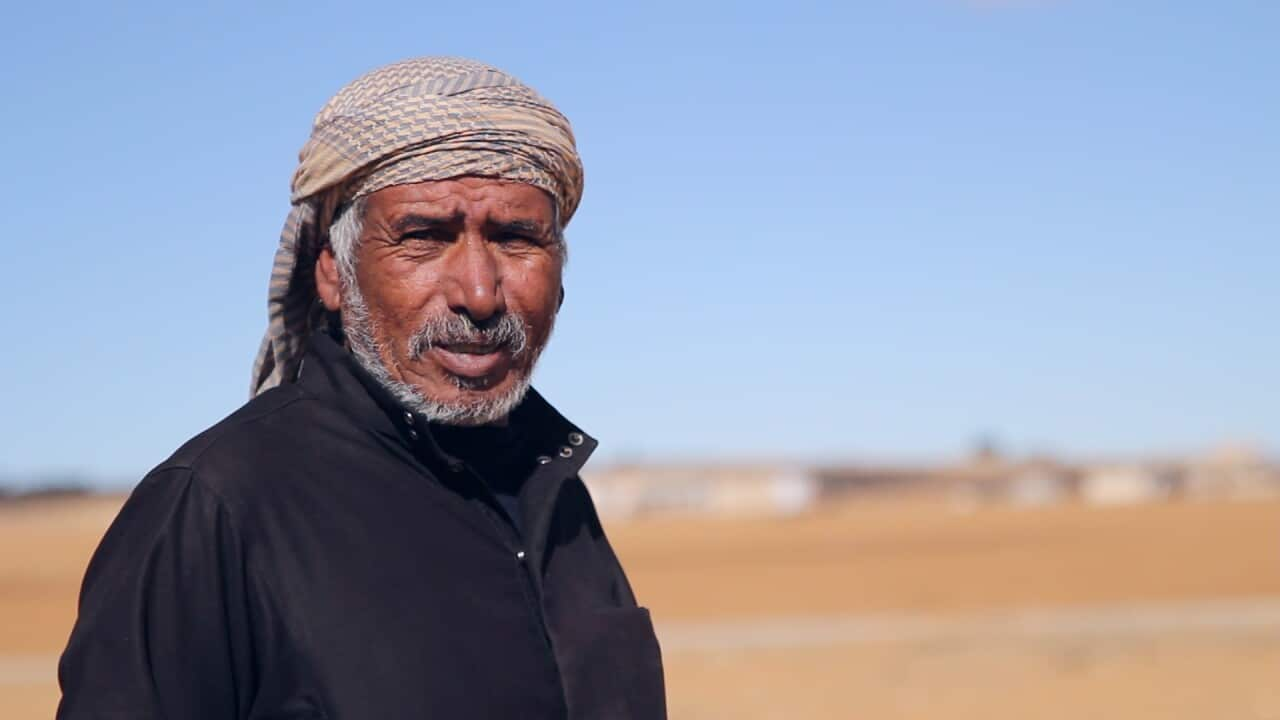We often view life in the country as an idyllic escape from the rat race.
And while it’s true that people in small towns and non-urban areas report than their city-dwelling counterparts, life in regional and rural Australia is often accompanied by higher levels of disadvantage, an issue explored in the third season of Struggle Street on SBS.
People living in regional Australia also experience poorer health outcomes. According to the , “Australians living in rural and remote areas tend to have shorter lives, higher levels of disease and injury and poorer access to and use of health services compared to people living in metropolitan areas,” Sabine Wardle, a lecturer in social work at Charles Sturt University in Wagga Wagga.
Educational disadvantage is also a feature of country life. A attributed an achievement gap that sees city students outperform country kids as early as Year Three to a range of factors including lower socioeconomic status and rates of educational attainment among rural parents, a lack of resources in regional schools, and difficulties in attracting and retaining teaching staff.
Youth unemployment is also worse in regional Australia. Of the 10 regions with the highest youth unemployment rates in Australia, the top eight spots are occupied by non-urban areas, according to a .
The good news is that communities are coming together in regional Australia to help those in need. Here are just some of the organisations that do great work supporting disadvantaged people in regional and rural Australia.
Aboriginal and Torres Strait Islander Peoples
According to the National Rural Health Alliance, people living in rural and remote Australia experience than those who live in metropolitan areas. Poverty also disproportionately affects Aboriginal and Torres Strait Islander people, 65 per cent of whom live outside major cities.
Lowitja Institute
An Aboriginal and Torres Strait Islander-run organisation, the Lowitja Institute supports high-impact quality research in health and by supporting Aboriginal and Torres Strait Islander health researchers. to learn more about the Lowitja Institute and how you can support the work it does.
Healing Foundation
The Healing Foundation is a national organisation governed by an Aboriginal and Torres Strait Islander board that partners with communities to address the ongoing trauma caused by the forced removal of children from their families. how your donation can support the Healing Foundation’s programs.
Mental health
Mental illness is of particular concern in country communities. People living in regional areas experience mental illness at around the same rates as city dwellers; however, the and suicide increases with remoteness. The ongoing drought in areas like the Riverina in New South Wales has a substantial impact on mental health in farming communities, says Wardle. “With the lack of mental health support services, we see a higher rate of suicide in farming communities – that’s where we need more support.”
SANE Australia
SANE Australia is a national mental health charity working to support four million Australians affected by complex mental illness. SANE’s work includes mental health awareness, online peer support and information, stigma reduction, specialist helpline support, research and advocacy. If you’re worried about your mental health or somebody else’s, call the helpline on 1800 18 7263. Find out how you can support SANE Australia at .
Beyond Blue
Beyond Blue is a national organisation committed to helping all people in Australia achieve their best possible mental health. It offers a 24-hour telephone support service (1300 22 4636) as well as online chat and email services to people who need to speak to a trained mental health professional. Find out more about .
Lifeline
Lifeline is a national charity with locations throughout regional Australia that provides access to 24-hour crisis support and suicide prevention services. Lifeline also provides for anyone with speech or hearing impairments or who speaks English as a second language. If you need help call the helpline on 131114. Find information about fundraising, volunteering and donating .
Black Dog Institute
Founded in 2002, the Black Dog Institute is national organisation that is committed to creating a mentally healthier world. Among its priorities is focusing on high needs groups including young people, Indigenous communities, men, and high-risk workforces. Find out more about making a donation .
Alcohol and drugs
A found that alcohol and drug use are significant problems in regional communities. The decade between 2007 and 2017 saw a 41 per cent increase in the number of drug-induced deaths in regional and remote areas, compared to a 16 per cent in major cities, while people living in remote areas are more than the amount of alcohol recommended in health guidelines. Compounding the issue is the lack of alcohol and drug support services found outside of metropolitan areas.
Alcohol and Drug Foundation
Established in 1959, Alcohol and Drug Foundation (ADF) is a leading organisation committed to preventing and minimising the harm caused by alcohol and other drugs. ADF delivers community programs to prevent and minimise substance use problems. Find as well as information about how you can .
Disability support
There’s the spectre of social isolation that comes with regional living – a serious issue for the elderly, people with disabilities, and refugees and migrants who lack interpreter services they need to overcome language barriers in their new home, says Wardle. “They’re basically left on their own…to rely on charities like .”
Wellways
Established in 1978, Wellways Australia is a not-for-profit mental health and disability support organisation with services in Queensland, New South Wales, the Australian Capital Territory, Victoria and Tasmania. Wellways helps people of all ages and diverse backgrounds, and its services span mental health, disability and community care. Find out how you can get involved at the organisation’s .
YoungCare
YoungCare is a not-for-profit organisation providing fully accessible and age-appropriate living spaces, grants for equipment and home modifications and support through a national phone line. Youngcare – which receives no recurring government funding, instead relying on solely on the support of donations – helps young people with high needs choice to live where they want. Find out how you can donate or volunteer at the .
Rural assistance
A lack of health and support services, social isolation and vulnerability to natural disasters like flood, fire and drought are some of the challenges that communities in regional Australia face on a daily basis. Visiting regional towns, shopping local, and buying Australian-grown produce are some of the most effective ways to help communities struggling to survive the hardship of drought. There are also a range of organisations helping farming communities in times of need:
Country Hope
Country Hope provides support programs to country children diagnosed with cancer and other chronic, life-threatening illnesses. Dedicated to developing support programs and services that address the needs of the entire family, Country Hope supports hundreds of families in the Riverina and Murray regions in New South Wales and Victoria. Find out .
The Salvation Army Australia
Australia is a church and charity that offers a range of services around the country across accommodation and homelessness, addiction, aged care, disaster and emergency relief, youth support and unemployment. The Salvos also runs a program for people living in rural and remote Australia who need emotional support or practical help on the farm.
Aussie Helpers
Aussie Helpers is a Queensland-based organisation that runs fundraising programs to deliver necessities like hay, farming supplies and other services to drought-affected farmers and their families. Aussie Helpers also accepts donated farm equipment and tools, new computers and sporting equipment. Find out more .
Rural Aid
aims to develop sustainable rural communities throughout Australia. It runs a range of programs including , (to help flood-affected farmers rebuild herds), and volunteering platforms and . .
Lions Clubs Need for Feed
Supported by Lions Club, Need for Feed raises money to provide drought, flood and fire relief to farming communities in Victoria. A significant part of its work is providing hay and feed for stock to farmers. Need for Feed accepts donated fodder, including hay, non-perishable household goods, dog food and other types of animal feed, as well as cash donations. Find out more about .
Other - Go Fund Me Pages
GoFundMe pages have been set up for some of the contributors in Struggle Street. SBS is not associated with these GoFundMe campaigns, but is providing this information as one of a range of options available to help those in need. You can view Barry and Rosey's GoFundMe page, which was set up by a family friend, , and Marie-Anne's GoFundMe (set up by Mary Anne) . A GoFundMe page for Cody has been set up by a friend of Peta's .
Season 3 of Struggle Street airs on Wednesdays at 8.30pm on SBS. The four-part documentary series continues weekly on Wednesdays. Episodes will stream at after broadcast.
Catch up on episode one:
These videos were produced in partnership with SBS and the University of Sydney’s Matilda Centre for Research in Mental Health and Substance Use, Social Policy Research Centre, and Charles Sturt University.


